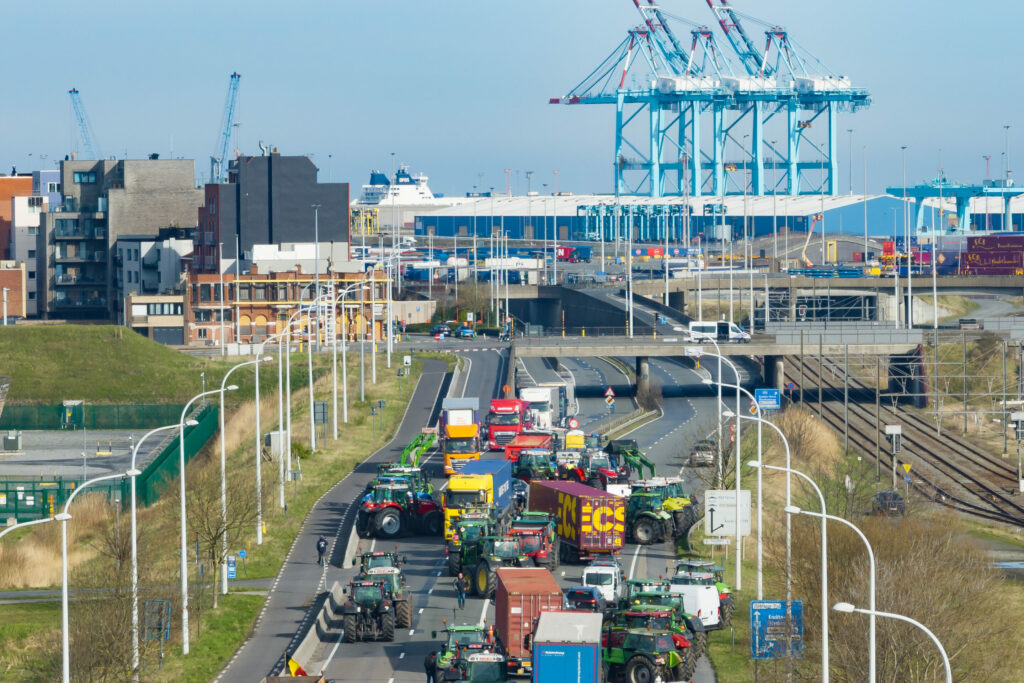Around 100 tractors made their way to the port area of Ghent on Thursday morning, Belga News Agency reported. Early protest signs were reported near the Zelzate bridge, crucial for navigation in Ghent’s port area.
Approximately 50 tractors took to Kennedylaan to obstruct two roundabouts serving the Euro-Silo company and steel group ArcelorMittal. The first roundabout is also a key route for pedestrians and commuters aiming for the city’s north end. Local police engaged with protestors to clear the area as farmers had not received permission to blockade the busy junction with their tractors or set up filtering barriers.
Police warned them of potential fines, something that East Flanders Governor Carina Van Cauter had also warned would be issued if the demonstrations were not approved. By 08:30, Van Cauter announced that protestors were complying with the police.
The governor emphasised that "all resources – both police and judicial – will be implemented" to enforce the ban on barricades. However she noted that she does not think this will be necessary given the present circumstances.
Related News
- Belgium in Brief: Toxic farming and toxic food
- 'Sowing despair and misery': Farmer protests denounce EU's free trade agreements
- European Parliament tightens industrial pollution rules but exempts cattle farming
The Belgian branch of the Farmers Defence Force (FDF) had declared last week that a fresh industry protest would take place on March 14, with filtering barriers planned at the ports of Antwerp, Zeebrugge and Ghent. Thursday's action is especially a reaction to the reductions in nitrogen emissions that farmers in Flanders must make. Protestors are keen to highlight that other industries also emit nitrogen and should therefore also have to adhere to similar reductions.
On February 26, 900 tractors converged in Brussels at the call of national unions (Boerenbond, Walloon Federation of Agriculture, Fugea…) to voice the sector’s grievances alongside an EU agriculture ministers’ council of all 27 Member States.
Farmers particularly urged Europe to withdraw from free-trade agreements that are leading to competition with foreign goods produced more cheaply and to lower environmental standards. They also urged an end to negotiations on the EU-Mercosur deal.
A protest of similar proportions was organised on February 1 in Luxembourg Square, in front of the European Parliament. The FDF-organised rally is not endorsed by other unions.
Both the Governor of East Flanders and the management of North Sea Port issued warnings on Wednesday that they would confront farmers if the protest escalates. Further actions are anticipated later on Thursday.

